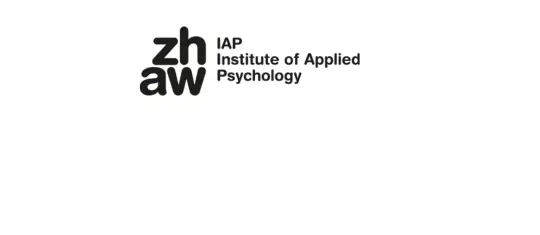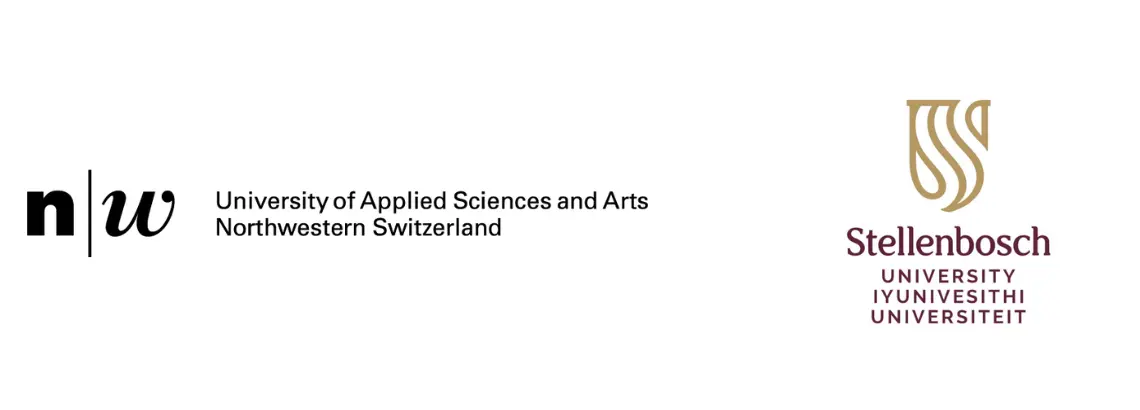Coaching Perspectives – AI, game changer or hype?
Discover how the advancements in artificial intelligence are reshaping the future of coaching. Join us at our international conference on AI in coaching, where leading experts and industry professionals will delve into the nature, application, impact, and potential benefits and risks of AI in this transformative field.
12th of September 2024

How will AI shape the future of coaching?

The rapid increase in the use of AI in all industries, including organisational coaching, is the backdrop against which we are hosting an international conference on AI in coaching.
This conference will be a collaboration between ZHAW, the University of Applied Science and Arts Northwestern Switzerland and Stellenbosch University Business School. It will be a one-day event with a single session stream.
Aim
The aim of the conference is to bring together coaches, clients, academics, researchers and users of AI coaching to explore and critically question the nature, application, impact, potential benefits and, importantly, the dangers and limitations associated with the use of AI in coaching. The conference will address, discuss and reflect on the topic from four perspectives: Philosophical, Theoretical, Practical and Ethical.
Details
We look forward to a varied and inspiring day with you and invite you to mark the date in your calendar:
Date
12th September 2024
8:30 a.m. to 5 p.m.
followed by an aperitif till 7 p.m.
Cost
CHF 390.00 (including coffee breaks, lunch, socializing event)
Registration: last places available until September 2nd
Hint
Conference language is English
Location
ZHAW, Campus Toni-Areal
Lecture hall 1
Pfingstweidstrasse 96
8005 Zürich
Event program
Thursday, 12th of September
| Time | Session |
|---|---|
| 08:30 | Welcome Coffee |
| 09:00 | Conference Opening |
| 09:15-10:00 | Keynote 1: Speaker Nicky Terblanche: The current state of research on AI in coaching |
| 10:00-10:45 | Keynote 2: Speaker Tatiana Bachkirova: What is the best, and what is the worst about AI in coaching? |
| 10:45 | Break |
| 11:15-12:15 | Panel Discussion: Using AI in coaching – is it really a game changer? Alex Haitoglou, Harald Geissler and Rebecca Rutschmann |
| 12:15 | Lunch |
| 13:30-14:30 | Panel Discussion: Ethics of AI in coaching – how worried should we really be? Joel DiGirolamo, Jonathan Passmore and David Drake |
| 14:30-15:30 | Group work: Let`s create your informed position on AI in coaching. |
| 15:30 | Break |
| 16:00-16:45 | Final Keynote: Speaker Adina Tarry: Developing an informed position on AI in coaching |
| 16:45 | Closing of conference |
| 17:00 | Socializing event |
| Subject to change |
Keynote Speaker and Topics
Keynote 1
| The current state of research on AI in coaching |
|---|
| Abstract: The uncharted waters of AI in Coaching are reminiscent of the early days of Coaching itself: speculation, unsubstantiated claims, hype, and fear. One way to gain more clarity is to resort to evidence-based practice. By doing high quality research on the various aspects of using AI in Coaching we may get to a more realistic picture of its potential. I have been doing research on AI in Coaching for several years and in this session, I will share insights from my own as well as other studies. |

Nicky Terblanche is an academic, researcher, leadership coach and entrepreneur. He has a master’s degree and PhD in Leadership Coaching and a master’s degree in electronic and software engineering. He is Associate Professor of Leadership Coaching and Research Methodology at Stellenbosch Business School, South Africa. His research interests include leadership coaching with a focus on Artificial Intelligence Coaching. He also runs an executive and leadership coaching practice. Nicky has published more than 30 peer-reviewed research articles and book chapters and regularly presents at international conferences as keynote speaker. He is also the founder and CEO CoachVici.com that creates AI Coaches for organisations and research lead at Ovida.org.
Keynote 2
| What is the best, and what is the worst about AI in coaching? |
|---|
| Abstract: My starting point in this talk is to argue that the best thing about AI movement in coaching is that it forces us to become much clearer what our human-based service is about and what is special about it particularly in the organisational context. If we can at last (!), conceptualise the nature of our practice, we should then be able to see if any version of ‘stand-alone AI coaching’ is a reasonable substitution for human coaching or if it should be named differently in order not to mislead our potential clients. Only after that will we be in a position to disengage from the ridiculous competition with AI – an undertaking that is presented under the umbrella of ‘democratizing coaching’. Only after that can we calmly discuss what functions of coaching, as we know it, can be enhanced with the limited use of AI. |

Tatiana Bachkirova is Professor of Coaching Psychology in the International Centre for Coaching and Mentoring Studies at Oxford Brookes University, UK. As an academic she supervises doctoral students, teaches coaching supervisors and trying to create more time for academic writing. As a practitioner she supports coaches through individual and group supervision. In her over 70 research articles, book chapters and books and in her many speaking engagements she aims to explore most challenging issues of coaching as a service to individuals, organisations and wider societies.
Final keynote
| Developing an informed position on AI in coaching |
|---|
| Abstract: On the cusp of the 4th digital revolution, the future emerges whilst we ask present questions about our work, but also about business, society, and nature. Understanding technological impacts is to reflect on the past, analyse the present and envision the future with hope; not only for ourselves but for the wider context of human civilisation. And our human attributes of consciousness, imagination, critical thinking, meaning making and social cultural accumulation remain the bedrock of our success. The decision to build resilience and exercise agency as humans, augmented and empowered by technology, is ours to make, just as we have successfully made such transitions, since the dawn of time. |

Adina Tarry is an Accredited Master Coach, Supervisor, Team Coach, Management Consultant, and International Mentor dedicated to “people in business” and a societal and sustainable future. A polymath thinker and practitioner-researcher, Adina uses global business experience gained with IBM, Alcatel, and Johnson & Johnson in a first career, with applied use of two degrees in psychology (clinic and business & consumer) in her second career, dedicated to leadership and management development, HR talent management, O/D cultures, structure and careers, across industries in corporations, SMEs and startups. Adina practices at the intersection of business, people, society, technology, science, philosophy, and ethics. She also exchanges knowledge as a part time Academic, Speaker and Author of multiple future oriented books designed for practice and practitioners. www.adinatarry.com
Panel 1
| Using AI in coaching – is it really a game changer? |
|---|
| Abstract: The rapidly evolving domain of AI in coaching mirrors the initial stages of coaching itself—characterized by speculation, excitement, and a dash of skepticism. In this upcoming panel discussion, esteemed players Alexander Haitaglou and Rebecca Rutschmann together with Harald Geissler will shed light on the practical application of AI-enhanced coaching. Haitaglou will discuss his extensive insights on AI's analytical capabilities to augment coaching effectiveness. Rutschmann will share her groundbreaking work in creating dynamic AI coaching experiences for both coaches and coachees. Meanwhile, Geissler will introduce his Triadic AI coaching method, where a specially developed coaching bot assists the coach and coachee during their video call interactions. |
| This panel aims to shed light on the practical applications and potential of AI within the coaching industry. Join us as we navigate this new field and explore how AI can truly enhance the coaching landscape. |

Alex Haitoglou is the founder and CEO of Ovida, the world’s first AI platform aimed at elevating communication skills in leadership and coaching. Prior to Ovida, Alex honed his expertise in global business leadership and entrepreneurship, with executive roles at Procter & Gamble, and Walgreens Boots Alliance, as well as launching and exiting a health-tech business. Ovida, leveraging AI and expert mentorship, is dedicated to enhancing the communicative potential of individuals and organisations, supporting skill development, training, and research across professional applications.

Harald Geissler was a professor for Educational Science at Helmut Schmidt University Hamburg/Germany until his retirement in 2015. Since the early 1990s, his research has focused on organizational learning and business coaching. With his extensive experience as a practitioner in business coaching, he developed the world's first web-based coaching tool: "Virtual Coaching (VC)" in 2006. In a next step, he has been offering online coaching education programs since 2017. In 2023, he enriched these programs by exploring and utilizing the capabilities of artificial intelligence.

Rebecca Rutschmann is a pioneering and prominent figure at the convergence of coaching technology and artificial intelligence. She has founded the AI coaching companion startup evoach in 2019, being responsible for all product development and acting as Co-CEO. As a trailblazing tech entrepreneur, communications specialist, and certified business coach, her expertise shines in crafting extraordinary user experiences, a testament to her deep understanding of both technology and human interaction.
Panel 2
| Ethics of AI in coaching – how worried should we really be? |
|---|
| Abstract: Drawing from our experience in coach education and the coaching industry, we will explore risks, opportunities and guidelines for the ethical use of AI in coaching practice, coach development, and client support. |

Joel DiGirolamo is the Vice President of Research and Data Science for the International Coaching Federation. He is the author of two books and numerous research papers and book chapters. Joel holds a master’s degree in industrial and organizational psychology, an MBA, a bachelor’s degree in electrical engineering, and is an Associate Editor for Consulting Psychology Journal.

David Drake Founder/CEO of The Moment Institute. Pioneer in the coaching space for 25 years. Founder of Narrative Coaching. Advisor for Ovida, AI-informed start-up that accelerates the development of coaches. Concierge to help key users get optimal results. Thought Leader for Institute of Coaching. Author of 75 publications, including as co-editor of SAGE Handbook of Coaching and author of Narrative Coaching: The Definitive Guide to Bringing New Stories to Life. www.themomentinstitute.com

Jonathan Passmore is professor of Henley Business School and Senior VP at EZRA, a digital-AI coaching business, part of the Adecco Group. He has previously worked for PWC and IBM and was in Inaugural Chair of the British Psychological Society Division of Coaching Psychology. He is a chartered psychologist, holds five degrees and is a master coach , supervisor and trained team coach. He has published widely with 40 books, 100+ peer review science papers and multiple book chapters published over the past 25 years on coaching, change and leadership. His forthcoming book The Digital & AI Coaches' Handbook (Routledge) is due for publication on 1 June. His current research focuses on digital coaching, AI and the role of technology in enhancing or inhibiting behavioural change and learning.
Conference Team
The event takes place in cooperation with the University of Applied Sciences and Arts Northwestern Switzerland FHNW and Stellenbosch University. If you have any questions about the event, please feel free to contact us by email coaching.iap@zhaw.ch

The IAP is the leading continuing education and counselling services institute for applied psychology in Switzerland. Since 1923 the IAP has developed specific solutions for real world challenges based on best evidence from psychology research.





